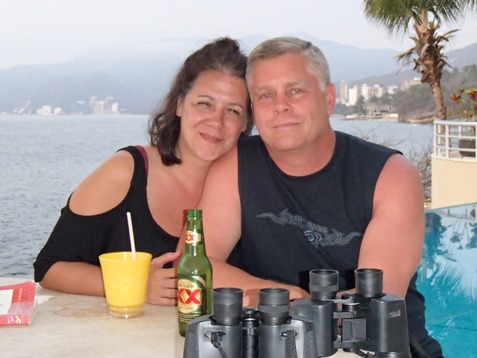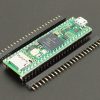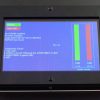
By Hobbyists for Hobbyists and the Professional
I have been involved in electronics for a long time in many different capacities. I initially got started in electronics in the Marines, then went on to work as a technician, managed electronics manufacturing departments and eventually worked my way up to being Director of Engineering for a large multi-national company. All along the way, I have considered myself a hobbyist and have enjoyed dabbling in it at the hobbyist level whenever time has permitted.
Like many, I have found good suppliers, but prices have often been higher than I would like or I have found inexpensive options, often from Asia, but with little technical information on the part and whether it would actually work for what I wanted to do. Waiting several weeks to a month to receive the part is also a buzz kill for me when I am in the middle of project. The phrase "Well, you get what you pay for" is uttered all too commonly when dealing with lower cost options in this hobby.
I realized that there seemed to be an unfilled niche in this market to bring some of these lower cost options to customers, but to also evaluate the parts to illustrated their real performance and highlight their pluses and minuses rather than making the hobbyist find out the hard way whether the product will work for their application or not.
In this hobby, we all want to save money, but we also want parts that we know will work for what we are trying to accomplish. Basically we don't want cheap parts, we want good value for our money and that is where ProtoSupplies.com comes in.
Before we carry a product, we test and characterize it and in many cases provide more complete specifications and documentation than is otherwise available.
Many items sold on-line are given only cursory or best case specs. As an example, if you buy an inexpensive DC-DC converter rated at 1.5A and expect to be able to draw 1.5A continuously from it in your project, you will probably find that the converter will either A) Overheat and shutdown or B) Fail completely. While the main component used in the assembly may have a theoretical max current rating of 1.5A, if the part does not have adequate heat sinking or the other components used in the assembly aren't spec'd correctly, that will limit the amount of power that the assembly can provide. It may work fine as a 750mA converter and fail miserably as a 1.5A converter.
If we carry that DC-DC Converter, we evaluate samples using dummy loads and supply voltages over their operating range and thermally characterize the main components so you know what kind of power you can draw from the device in your application as well as measure ripple/noise and other characteristics.
Depending on the product, some are 100% tested by us in-house before shipment to minimize the chance of a dud going out. Asia built power supplies and DC-DC converters are all given a quick load test. Arduino clones are powered up and downloaded with the Blinky example program to verify basic operation. They are then repackaged in high quality resealable ESD bags for safe. handling and storage. In other cases, we may replace parts that we consider not up to standards with better parts, such as the feet on the cheaper solderless breadboard assemblies that we sell.
Bottom line is that if your choices have been to buy a part from China for cheap with a long delay and little information, or buy from Amazon or Ebay often with the same little information and sometimes with a high mark-up to cover the 'free' shipping or from one of the main supply houses at top dollar, we want to offer another option which is to buy from us at a fair price with good information on what it is you are buying. We truly believe we are providing the best value for your money.
Best Regards,
--- Ken & Shelby



